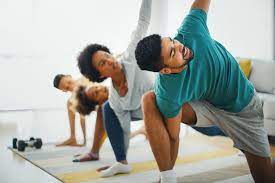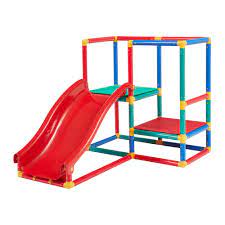
Unlocking the Power of Physical Play: Benefits for Children
The Importance of Physical Activity for Children
Physical activity plays a crucial role in the development and well-being of children. In today’s digital age, where screens dominate our daily lives, it’s more important than ever to encourage kids to get moving.
Regular physical activity not only helps children stay fit and healthy but also contributes to their overall development. It strengthens muscles and bones, improves cardiovascular health, and enhances coordination and balance.
Engaging in physical activities such as running, jumping, climbing, and playing sports not only keeps children physically active but also boosts their mental health. Exercise releases endorphins, which are feel-good hormones that help reduce stress and anxiety.
Moreover, physical activity fosters social skills as children learn to cooperate, communicate, and interact with others while playing together. Team sports, in particular, teach valuable lessons in teamwork, leadership, and sportsmanship.
It’s essential for parents and caregivers to create opportunities for children to be active every day. Whether it’s a trip to the park, a family bike ride, or enrolling them in sports classes, encouraging physical activity sets the foundation for a healthy lifestyle that can last a lifetime.
Remember, it’s not just about exercise; it’s about having fun and enjoying the benefits of an active lifestyle. So let’s get our kids up and moving – their bodies and minds will thank us!
8 Essential Tips for Maintaining Physical Wellbeing
- Stay hydrated by drinking plenty of water throughout the day.
- Incorporate a variety of exercises into your routine to work different muscle groups.
- Ensure you get an adequate amount of sleep each night for physical recovery.
- Maintain good posture to prevent strain on your muscles and joints.
- Warm up before exercising and cool down afterwards to prevent injuries.
- Listen to your body and rest when needed to avoid overexertion.
- Eat a balanced diet rich in fruits, vegetables, lean proteins, and whole grains.
- Make time for regular physical activity that you enjoy to stay motivated.
Stay hydrated by drinking plenty of water throughout the day.
It is essential to stay hydrated by drinking plenty of water throughout the day. Water plays a vital role in maintaining our body’s functions, especially during physical activities. Hydration helps regulate body temperature, transport nutrients, and flush out toxins. By drinking an adequate amount of water regularly, we can ensure that our bodies are well-prepared for any physical challenges we may face, keeping us energised and healthy. So remember to keep a water bottle handy and sip on it frequently to stay hydrated and at your best throughout the day.
Incorporate a variety of exercises into your routine to work different muscle groups.
To maximise the benefits of physical activity, it’s important to incorporate a variety of exercises into your routine that target different muscle groups. By engaging in a diverse range of movements, you can ensure that all areas of your body are being challenged and strengthened. This approach not only helps to prevent muscle imbalances but also promotes overall fitness and flexibility. So, whether it’s cardio, strength training, or flexibility exercises, mixing it up will keep your workouts interesting and effective in achieving a well-rounded level of fitness.
Ensure you get an adequate amount of sleep each night for physical recovery.
Ensuring you get an adequate amount of sleep each night is crucial for physical recovery. During sleep, the body repairs and rejuvenates itself, allowing muscles to recover from the day’s activities. Adequate rest also supports overall physical health, boosts energy levels, and enhances cognitive function. By prioritising quality sleep, you give your body the time it needs to heal and prepare for the next day’s challenges, ultimately contributing to improved physical well-being and performance.
Maintain good posture to prevent strain on your muscles and joints.
Maintaining good posture is essential to prevent strain on your muscles and joints. When you sit, stand, or move with proper alignment, you reduce the risk of putting unnecessary stress on your body. Good posture helps distribute weight evenly, keeping muscles and joints in their optimal positions. By being mindful of your posture throughout the day, you can promote better musculoskeletal health and reduce the likelihood of discomfort or injury. Remember to sit up straight, keep your shoulders back, and align your ears with your shoulders to support a healthy posture that benefits your overall well-being.
Warm up before exercising and cool down afterwards to prevent injuries.
It is important to remember to warm up before starting any exercise routine and cool down afterwards. Warming up helps prepare the body for physical activity by increasing blood flow to the muscles and loosening joints, reducing the risk of injury. Cooling down allows the body to gradually return to its resting state, helping prevent muscle soreness and stiffness. By incorporating these simple steps into your exercise regimen, you can ensure a safer and more effective workout experience.
Listen to your body and rest when needed to avoid overexertion.
Listening to your body and knowing when to rest is essential in maintaining a healthy balance of physical activity. Overexertion can lead to fatigue, injuries, and burnout, so it’s crucial to pay attention to your body’s signals. Resting when needed allows your muscles to recover, prevents strain on your joints, and reduces the risk of overuse injuries. By prioritising rest and recovery as part of your fitness routine, you can ensure that you stay energised, motivated, and able to enjoy physical activities for the long term.
Eat a balanced diet rich in fruits, vegetables, lean proteins, and whole grains.
It is essential to complement physical activity with a balanced diet rich in fruits, vegetables, lean proteins, and whole grains. These nutritious foods provide the energy and nutrients needed to support an active lifestyle and promote overall health. Fruits and vegetables are packed with vitamins, minerals, and antioxidants that help boost immunity and keep the body strong. Lean proteins aid in muscle growth and repair, while whole grains offer sustained energy for physical activities. By incorporating these healthy food choices into your diet, you can fuel your body effectively and maximise the benefits of staying active.
Make time for regular physical activity that you enjoy to stay motivated.
Making time for regular physical activity that you enjoy is key to staying motivated and committed to your fitness routine. When you engage in activities that bring you joy and satisfaction, exercise doesn’t feel like a chore but rather a rewarding experience. Whether it’s dancing, hiking, playing a sport, or simply going for a walk in nature, finding activities that resonate with you makes it easier to stay consistent and motivated. So, carve out time in your schedule for activities that make you happy and energised – your body and mind will thank you for it!



